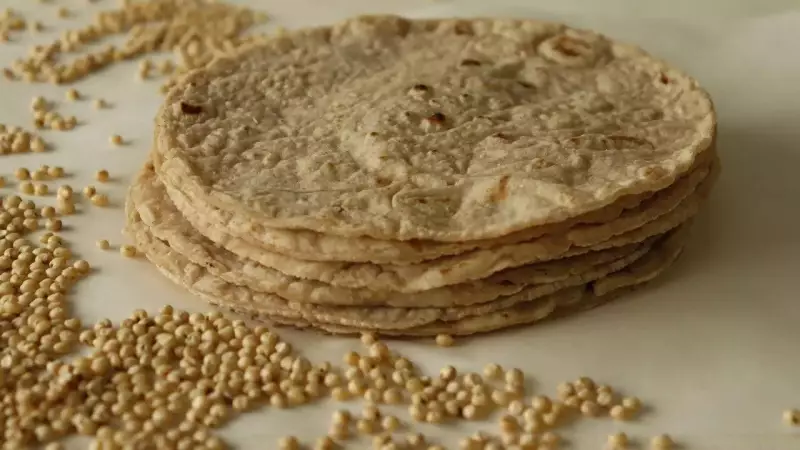
In today's health-conscious India, the conversation around carbohydrates has dramatically shifted from mere calorie counting to understanding carbohydrate quality. As more Indians experience fluctuating blood sugar levels after meals or early signs of metabolic issues, health experts are emphasizing how different carbs behave inside our bodies.
The Power of Smart Carb Swaps
Holistic Health Nutritionist Khushi Chhabra recently made waves with her social media reel explaining how people with prediabetes or diabetes can achieve remarkable improvements in glucose regulation. Her groundbreaking claim? Simply changing your carbohydrate sources can reduce sugar spikes by 30 to 50 percent.
This approach aligns with growing scientific interest in whole grains and fiber-rich plant foods that release glucose gradually rather than causing sudden spikes. Understanding these food mechanics helps create daily meals that support stable metabolic patterns and sustained energy levels.
Five Everyday Carbs for Stable Glucose
Chhabra specifically highlighted five nutrient-dense carbohydrates that, when regularly incorporated into meals, contribute to steadier glucose release, improved satiety, and more balanced insulin responses. These traditional and modern options offer practical solutions for Indian households.
1. Jowar (Sorghum)
Jowar emerges as an excellent alternative to white rice or wheat due to its resistant starch content that digests slowly and delays glucose absorption after meals. Research published in Nutrients confirms that resistant starch significantly reduces postprandial glucose responses.
Beyond its slow-digesting properties, jowar contains natural polyphenols linked to improved insulin function. The combination of resistant starch and polyphenols makes jowar particularly beneficial for those experiencing sharp sugar increases after eating.
2. Quinoa
Quinoa stands out for its complete protein profile and mineral density, both crucial for glucose regulation. Its balanced amino acid structure naturally slows digestion, preventing steep glucose rises. The magnesium content in quinoa further supports insulin signaling pathways.
A study in Antioxidants demonstrated that quinoa-based meals resulted in more stable post-meal glucose levels compared to refined grain meals, reinforcing its metabolic advantages for Indian diets seeking international superfoods.
3. Oats
Oats contain beta-glucan, a soluble fiber that forms a gel in the stomach, slowing digestive transit and moderating glucose entry into the bloodstream. Extensive research, including a review in the European Journal of Clinical Nutrition, confirms that daily oat beta-glucan intake lowers both postprandial glucose and insulin levels.
Additionally, the fermentation of this fiber in the gut produces short-chain fatty acids that may enhance insulin sensitivity over time, making oats a powerful ally for long-term metabolic health.
4. Ragi (Finger Millet)
Ragi naturally carries a lower glycemic load than wheat-based staples, thanks to its high fiber content, mineral profile, and unique amino acid composition. A study in the Journal of Food Science and Technology compared finger millet meals with refined wheat alternatives and found significantly lower post-meal glucose levels in the ragi group.
This traditional Indian grain proves especially helpful for individuals struggling with frequent cravings or energy dips linked to unstable glucose levels, offering a return to ancestral eating wisdom.
5. Sweet Potato
Sweet potato serves as a more balanced option compared to regular potatoes or white rice because its starches break down gradually. Its rich antioxidant profile, featuring beta-carotene and anthocyanins, has shown potential benefits for reducing metabolic inflammation and supporting insulin behavior.
Research published in Food Bioscience found that sweet potato extracts improved insulin sensitivity and moderated glucose responses among participants, making this colorful root vegetable both nutritious and metabolically supportive.
Embracing a New Carbohydrate Consciousness
The emerging understanding of carbohydrate quality represents a significant shift in nutritional thinking, particularly relevant for India's growing diabetes concerns. Rather than eliminating carbohydrates entirely, the focus moves toward selecting slower-digesting, nutrient-rich options that naturally support metabolic balance.
As Khushi Chhabra's recommendations demonstrate, simple dietary swaps can yield substantial improvements in glucose management. From traditional grains like jowar and ragi to modern additions like quinoa, these options provide practical solutions for everyday Indian cooking while supporting long-term metabolic health.
Disclaimer: This article is for informational purposes only and should not be considered medical advice. Please consult a healthcare professional before making any changes to your diet, medication, or lifestyle.





